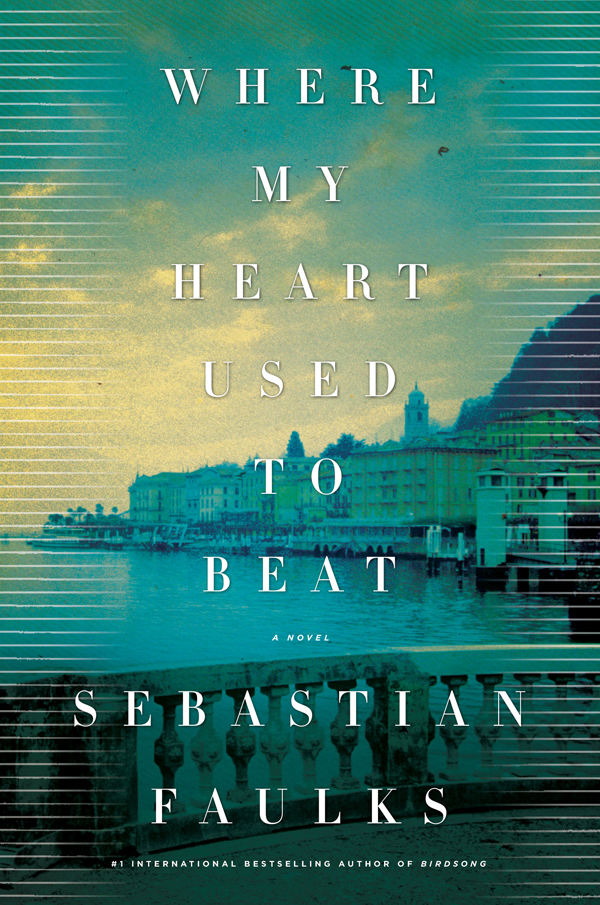
Where My Heart Used to Beat
A Novel
فرمت کتاب
ebook
تاریخ انتشار
2016
نویسنده
Sebastian Faulksناشر
Henry Holt and Co.شابک
9780805097337
کتاب های مرتبط
- اطلاعات
- نقد و بررسی
- دیدگاه کاربران
نقد و بررسی

January 11, 2016
The subject of war is not new to Faulks, who has explored both world wars in many of his previous works. In his 13th novel, he examines the vagaries of human nature when under siege, primarily through the eyes of Robert Hendricks, who was at the front in WWII and whose father died in WWI. Readers first meet Hendricks in 1980, when he's an accomplished British psychiatrist visiting New York for a convention. Upon his return home, he receives a letter from Alexander Pereira, a neurologist in France, who explains that he served in WWI with Hendricks's father and has a job proposition for Hendricks. The ensuing relationship between the two men serves as a balm to Hendricks. Through discussions both therapeutic and confessional, he reveals the heart of his war experiences, as well as his postwar work, and finds a kind of closure. Hendricks, whose experiences were harrowing on the one hand and joyous on the otherâhe met his one true love in Italyâcomes to terms with the lonely life he has led since the war. Faulks is renowned and respected for his fresh approach to well-trod topics, such as combat's assault on the human psyche. Here Hendricks posits the decline of humanity in the despicable acts that occur under the guise of war, but still throws himself into trying to repair the mentally and emotionally broken. Despite everything he's experienced, he will not give up on the human race.

Starred review from November 15, 2015
A novel that artfully mixes memory and desire as a World War II veteran accesses painful memories of a wartime romance. In 1980, Dr. Robert Hendricks is an established psychiatrist in London with an impressive book, The Chosen Few, to his credit. One day he gets a letter from a 93-year-old therapist, Dr. Alexander Pereira, who admires his book and also has some information about his father, who died during the first world war, when Hendricks was 2. Hendricks takes Pereira up on his invitation to visit him at his home on a small island off the coast of France. Pereira had briefly known Hendricks' father during the war and has a few photographs and artifacts he wishes to share--and he also suspects that Hendricks has repressed some memories about his own war experience, which included the landing at Anzio in 1944 and a short but tempestuous relationship with Luisa, the beautiful daughter of a Genoese businessman. As one might expect, Hendricks tells much of the novel through flashbacks to his war experience, and few authors write about war as well or as vividly as Faulks. We meet a range of officers and other soldiers whom Faulks deftly avoids stereotyping--they're presented with all their flaws and gestures toward heroism and cowardice. Hendricks himself received a war wound, and with Pereira's encouragement he finally remembers how--and it's not a moment of heroism. At the center of Hendricks' memories is Luisa. His tangled relationship with her shapes the rest of Hendricks' life and gives him deeper understanding of his theories about love. An absorbing look at the intimate connection between love, war, and memory.
COPYRIGHT(2015) Kirkus Reviews, ALL RIGHTS RESERVED.

August 1, 2015
A British physician living off the coast of France longs for a woman he met while serving with the Allies in Italy during World War II. When offered the opportunity to write the biography of an older physician celebrated for his work with dementia and memory loss, he gladly throws himself into the task, only to discover that Dr. Pereira knows more about him than he realized. From the author of the beloved Birdsong.
Copyright 2015 Library Journal, LLC Used with permission.

























دیدگاه کاربران